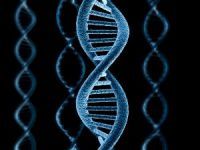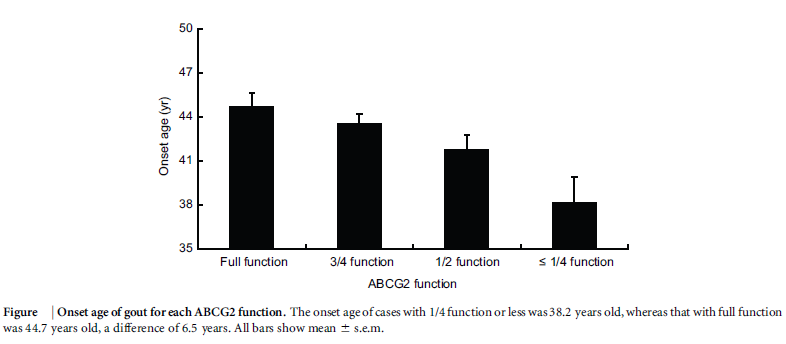Article
Single Gene Holds Key to Early-Onset Gout Risk
Author(s):
No studies had determined the genetic cause of early-onset gout cases until a group of Japanese researchers discovered a the same genomic dysfunction among the patients.

While gout is most common after middle age, more patients are presently experiencing an earlier onset of the arthritic condition. However, no studies had determined the genetic cause of those early-onset gout cases until a group of Japanese researchers discovered the same genomic dysfunction among the patients in their analysis published in the June 18, 2013, edition of Scientific Reports.
For their “Common Dysfunctional Variants in ABCG2 Are a Major Cause of Early-Onset Gout” study, Hirotaka Matsuo, MD, PhD, and investigators from medical colleges throughout Japan examined the activity of ABCG2 — a uric acid regulator that mediates urate excretion as a transporter gene — in 705 male gout patients and 1,887 male control subjects to determine whether dysfunction of the gene causes gout before the age of 30.
Splitting the genotype combinations into four functional groups on the basis of estimated ABCG2 transport — full function, mild function (¾ function), moderate dysfunction (½ function), and severe dysfunction (≤ ¼ function) — the authors found that “the less activity the ABCG2 function showed, the younger the onset age of gout became.” Furthermore, the gout onset age of patients with severe ABCG2 dysfunction was 6.5 years younger than those with full function of the gene. (Figure)

After detecting ABCG2 dysfunction in approximately 88.2 percent of the early-onset cases, compared to 49.8 percent of controls, the researchers conducted an association analysis to demonstrate each patient group’s increased risk of gout. In that subsequent study, the authors discovered that “severe ABCG2 dysfunction especially increased the risk of early-onset gout, conferring an adjusted odds ratio (OR) of 22.2, (while) moderate and mild dysfunction of ABCG2 markedly increased the risk of early-onset gout, conferring an adjusted OR of 15.3 and 6.47, respectively. In fact, any dysfunction of ABCG2 significantly increased the risk of gout in all onset-age groups.”
“Our overall results clearly show that common dysfunction of ABCG2 is a major cause of early-onset gout … that occurs in the twenties or earlier,” the authors concluded. “Because early-onset gout will compromise patients’ quality of life (QOL) for a long time and require huge life-long medical costs, early screening for ABCG2 dysfunction and appropriate interventions will greatly benefit high-risk individuals. Therefore, our findings will serve to improve the QOL of high-risk individuals and reduce health care costs.”
To ensure cost-effective screenings, the researchers also showed that genotyping only two dysfunctional ABCG2 variants — Q126X and Q141K — is sufficient to estimate the severity of the gene’s dysfunction, and thus, a patient’s early-onset gout risk.




